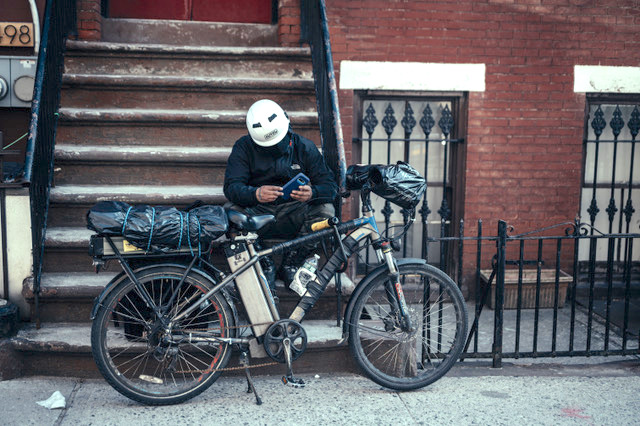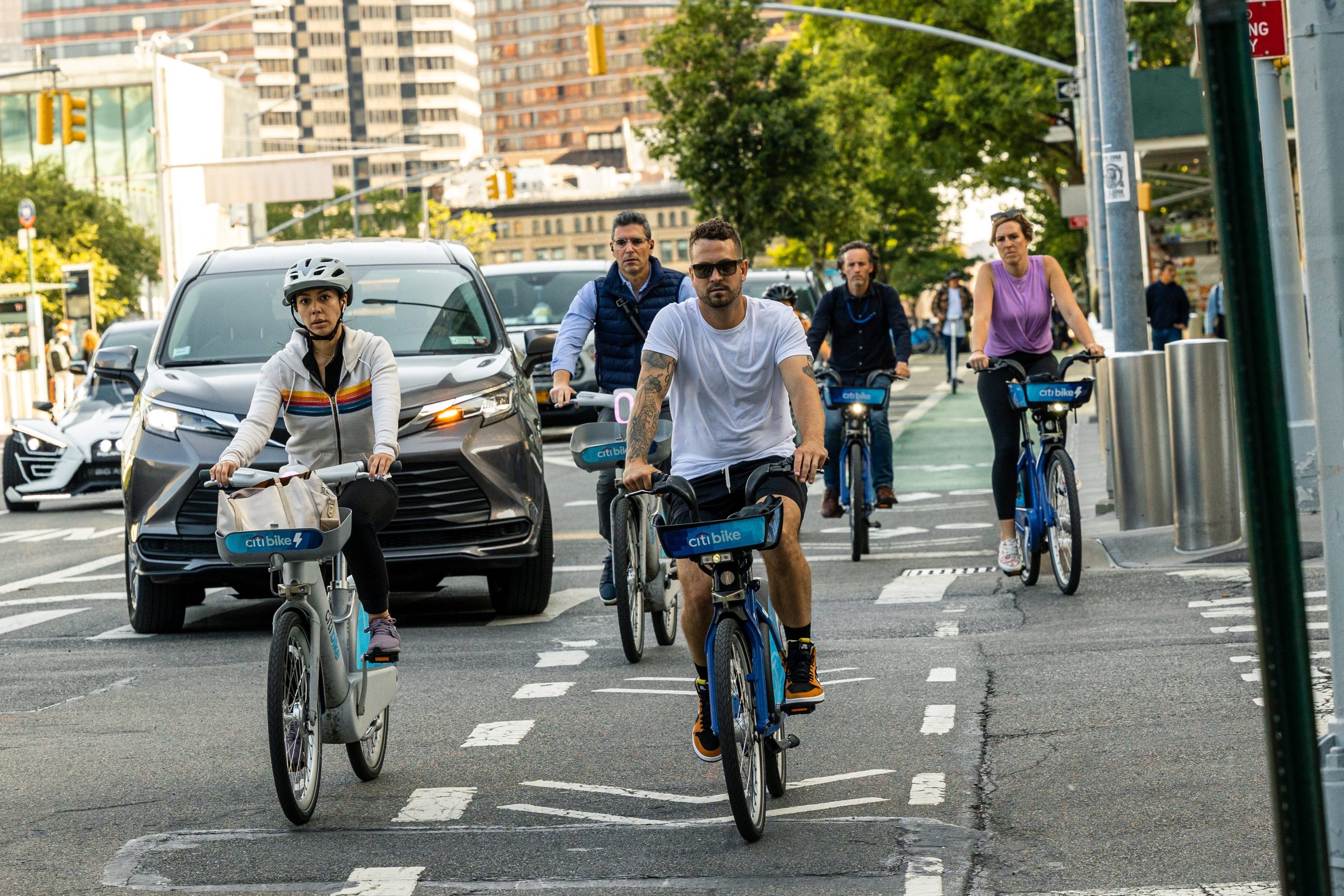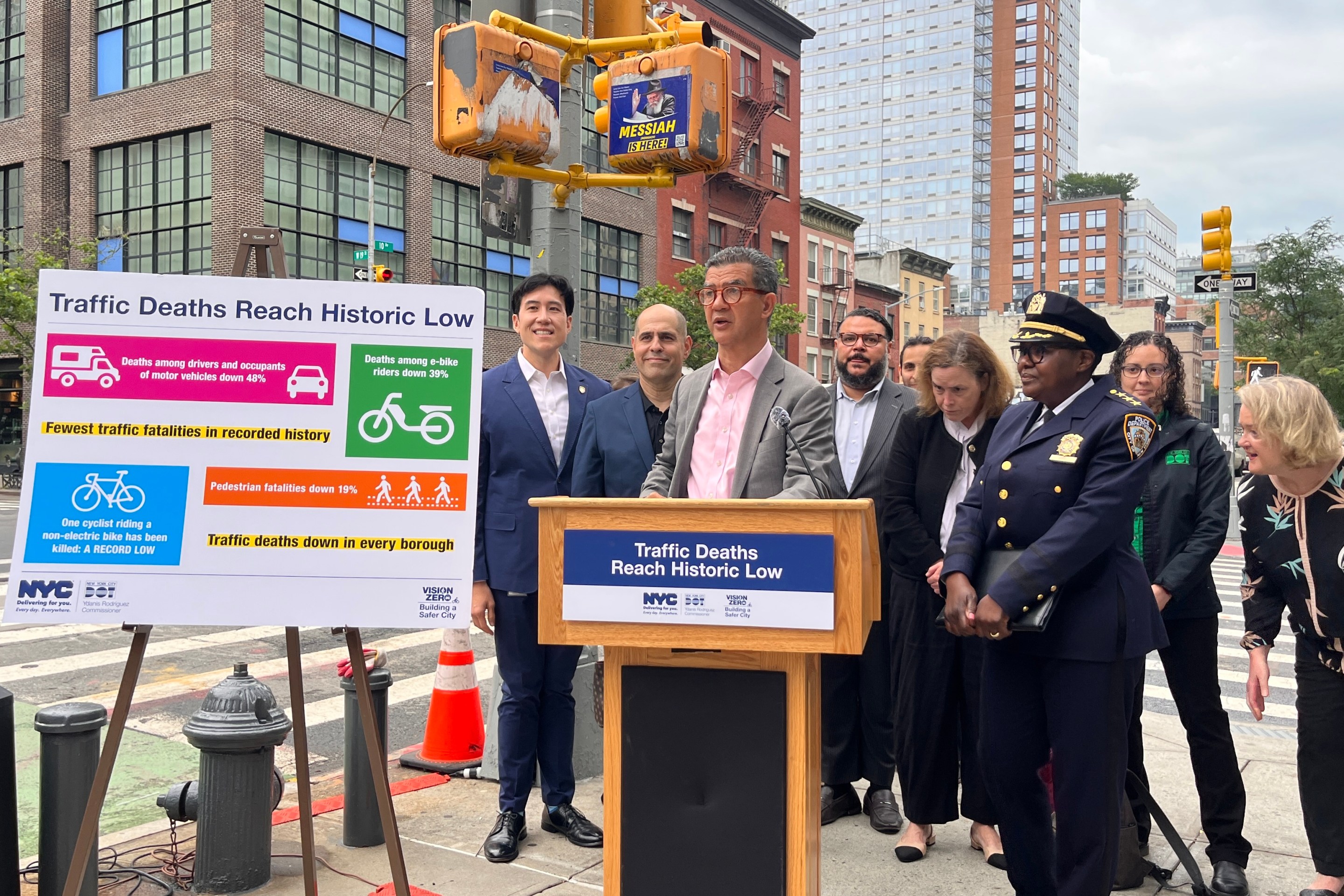When the pandemic hit New York City, William Medina turned to delivery work to survive. His days started early in Astoria to fit in 11-hour shifts delivering food, medicine, and essential goods for Relay in Chelsea throughout the Upper West Side, and his work enabled many New Yorkers to remain safe at home. Every day, he carried a spare lithium battery in his backpack to make it through a full shift and back home to Queens. William is one of about 65,000 app-based delivery workers who rely on e-micromobility devices to earn a living.
In every corner of our city, there’s a delivery worker making the last-mile delivery to keep New Yorkers safe and fed.
The City Council is expected to pass a slate of bills on Thursday to regulate lithium-ion batteries and e-micromobility devices, such as e-bikes. Our elected officials must pass legislation that keeps New Yorkers safe, while also supporting New York City’s more than 65,000 app delivery workers who depend on e-bikes and e-scooters to provide a better life to their families. We can address the recent spark of lithium-ion battery fires with resources, new micromobility infrastructure, and comprehensive policies that recognize and uplift the contributions of Deliveristas in making a more stronger and resilient New York City.
Los Deliveristas Unidos, a part of the Worker’s Justice Project, represents app-based delivery workers. Electric micromobility devices are the most essential tool of work for Deliveristas to meet their brutal delivery schedules; they must travel long delivery distances to make as many deliveries per day or week as possible because most of their income comes from tips.
E-bikes are the most practical mobility option, but a very expensive one for delivery workers who, on average, make $7.87 per hour for transporting food, medicine, and other essential goods. The cost of these e-bikes ranges from $1,800 to $5,000.
In addition to the e-bike, deliveristas invest between $500 to $800 for battery replacements, essential equipment for traveling long delivery distances and working longer hours. Without access to charging stations, deliveristas have no other option than to recharge their e-bike batteries at home or rent a parking garage – something that few can afford.
We understand the very real concerns driven by the recent spike of fires caused by defective lithium-ion batteries. All of us — delivery workers, advocates, and elected officials — want to protect New York City from devastating and preventable fires. We know we can have both: a city that is safe from battery fires and also understands the work of 65,000 delivery workers in all five boroughs.
We fully support better regulation of safe batteries, as well as efforts to address battery fires through outreach, safety education, and additional resources to upgrade batteries. However, these proposals can only be successful with a comprehensive plan that ensures the affordability and accessibility of these new batteries; the development of e-bike charging stations like the Street Deliveristas Hubs; and bringing stakeholder groups like Los Deliveristas Unidos to the table when it comes to designing future micromobility and transportation infrastructure, such as protected bike lanes. Additionally, without affordable and legal battery options available as well as a plan for the disposal of current batteries in use, a huge underground market will grow as the only accessible option, and set up the potential for harmful enforcement of delivery workers trying to do their job.
New York City needs an approach that prevents fires and makes safe batteries viable and financially accessible to riders. Solutions include:
- An e-bike subsidy program that will allow deliveristas to access new batteries at no cost.
- A citywide Deliveristas Educational Campaign to ensure workers understand the new regulations, while learning how to use, charge, and store their e-bike batteries.
- Secure e-bike parking stations that are accessible to Deliveristas across the city.
- A safety surcharge tax on delivery app companies that creates a fund to support workers purchasing safe batteries.
- State legislation to create an e-bike rebate program for more New Yorkers to afford new, safe e-bikes
Preventing battery fires is supporting delivery workers. Ensuring all e-bike batteries are safe is supporting delivery workers. We can have both: A city free of dangerous fires and a city that supports its 65,000 delivery workers. We urge the City Council to advance legislation that puts safe batteries in the hands of the delivery workers who rely on them.
Ligia Guallpa is the executive director of the Worker’s Justice Project/Los Deliveristas Unidos and Elizabeth Adams is the senior director of Advocacy & Organizing at Transportation Alternatives.






